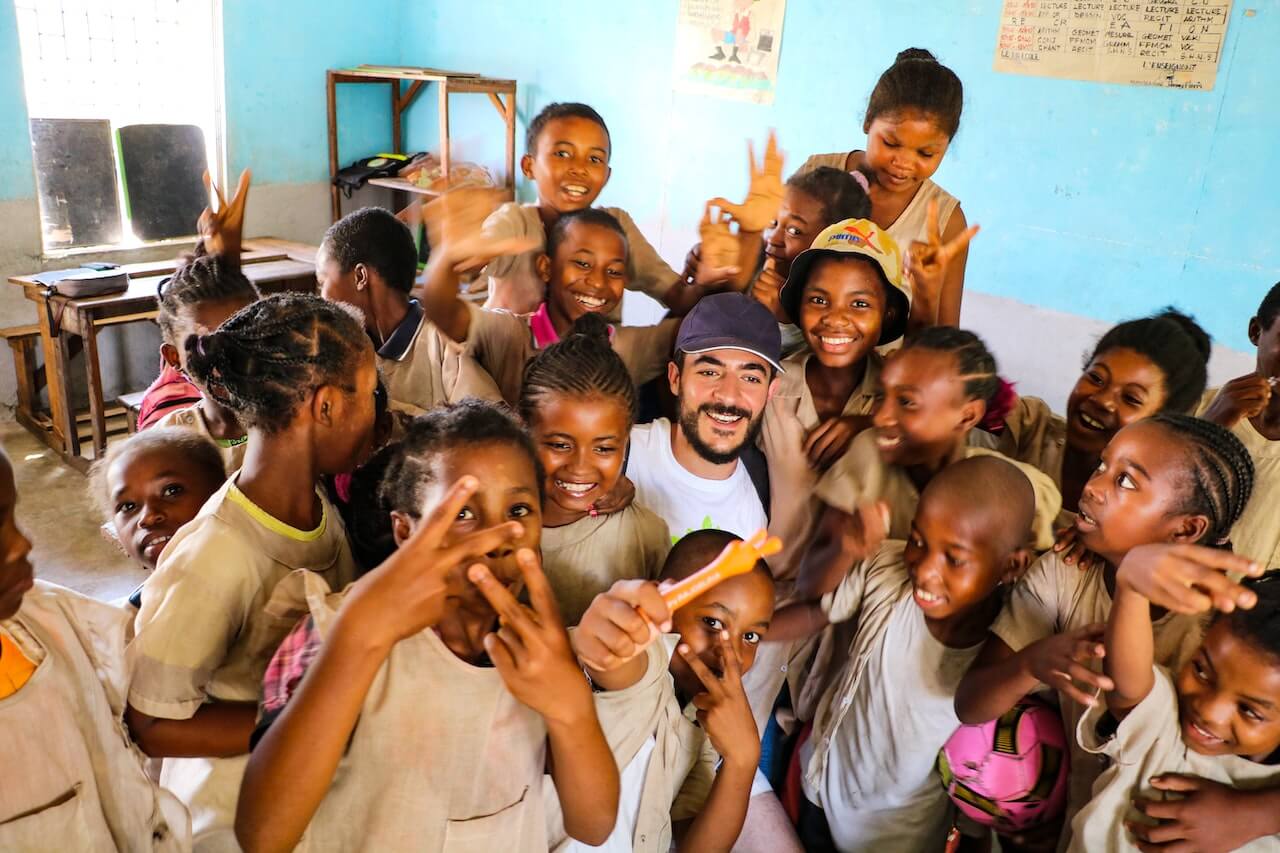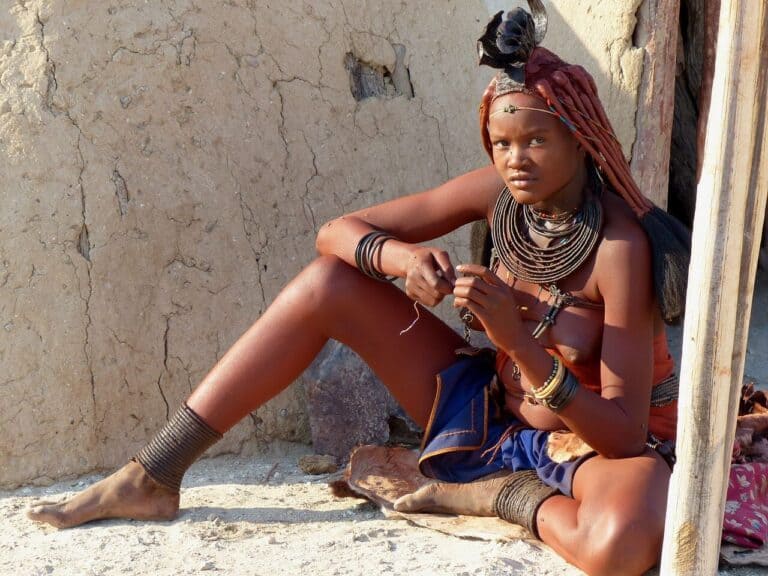Early childhood education and development in the Southern African Development Community (SADC) region has gained momentum in the few decades. SADC region, which comprises 15 member countries, is a regional economic community.
Countries in this community include Angola, Botswana, Democratic Republic of Congo, Lesotho, Madagascar, Malawi, Mauritius, Mozambique, Namibia, Seychelles, South Africa, Swaziland, Tanzania, Zambia and Zimbabwe.
SADC was established in 1992 to facilitate regional integration and poverty eradication within Southern Africa through development and ensuring peace and security. Recognizing this, the Association for the Development of Education in Africa ADEA (2014) states that African Heads of State in the SADC have made education and training a priority of the African Union’s Plan of Action for Education in the Second Decade.
And focusing on the SADC region, ADEA which is governed by a Steering Committee composed of African ministers of education and representatives of multilateral and bilateral development organizations who support education in Africa, reports that the SADC region has made significant gains in achieving universal primary education access, with over 80 per cent of appropriately aged children enrolled in school.
However, on average only 50 per cent of children are in lower secondary education and 33 per cent in upper secondary education, indicating a sizeable gap in human resource development that will mitigate the region’s opportunities in the global market and its economic trajectory.
ADEA further states that concerning ECE, considerable developments have been undertaken by member states in introducing policy and education provision in pre-primary. In recent years, the SADC Secretariat has, along with the rest of the continent, included Early Childhood Education as a priority area.
Please note that I have written an independent article on ECE providion in Zambia because of the attention I devoted to it, and also because I am Zambian.
Early Childhood Education in Botswana
Botswana is a country rich in resources; however, the ECE sector could be termed as a disadvantaged sector, which is gradually receiving attention. The government of Botswana had introduced 120 preschools to the existing primary schools only in 2014.
Before that, early childhood education was dominated by private sector, mostly with untrained teachers, and with no national curriculum to follow, as it was also introduced as late as 2014, by the Ministry of Education and Skills Development. In addition, the preschools that are available are clustered mostly in urban and semi-urban areas.
Access to early childhood education is scarce in remote and rural areas, especially with lower socio-economic conditions, and, if available, has an acute shortage of both human and physical resources. As a result, teaching and learning in most preschools is of low quality.
The Early Childhood Education Policy in Botswana also considers the needs of children with special education needs (SEN) by stating that any centre admitting children with SEN should liaise with the Division of Special Education for guidance and support‟ (Ministry of Education, 2004: 22.1). The National Policy on Vocational Education has also recognized that priority should be given to disadvantaged groups including disabled students and that special training programmes might need to be developed.
The population of Botswana constitutes of various ethnic groups speaking 27 languages other than Setswana (the official national language). Both English and Setswana are the official media of communication although, as already stated, the medium of instruction in schools from STD 2 is English.
Botswana’s present language policy is based on the transitional bilingual model, which means the use of the child’s first language (L1) as the medium of instruction at the initial stages of education.
Nyati-Ramahobo (1997) strongly opposes this idea by arguing that the bilingual model used is the transitional model for children from Setswana speaking groups. For children from minority groups, it is a transitional submersion programme in the sense that their first language (L1) is not used at all, and they are submerged into Setswana which is their second language (L2).
Early Childhood Education in Lesotho
In Lesotho, Early Childhood Care and Development (ECCD) refers to a period spanning from birth to 8 years of age of a child’s development. It is a time when the child receives utmost attention, care, stimulation, and guidance to learn, to ensure that s/he grows and develops holistically into a healthy human being. The nutritional and health status of a child is critical during this period and proper care is needed to provide for all the child’s needs.
The role of the Ministry of Education, through the ECD Unit, is mainly to regulate and monitor ECCD services in the country. ECCD centres are mainly operated by local communities, private individuals, NGOs and some church groups (Ntsonyane and Sebatane, 2005) who provide ECCD in the country.
The government also introduced a pre-primary class (5-year-olds) in Government primary schools nationwide (ADEA, 2015). Further, the government increased ECCD recurrent budget allocation, advanced preparations to introduce an ECCD teacher training programme at the Lesotho College of Education and efforts to expand the school feeding programme into ECCD centres and Home-bases.
The Home-based approach was introduced to address, specifically, the orphaned and vulnerable children who could not afford to be enrolled in ECCD centres where fees are paid.
Early Childhood Education Malawi
In Malawi, basic education has three main components. These include ECD; adult literacy, including those that are out of school, youth literacy and primary education. However, many consider basic education to be primary education. ECD I considered to be part of infant care and support. However, adult and out of school youth literacy is considered informal education.
Early Childhood Development is under the mandate of the Ministry of Women and Child Development and this ministry caters for programmes of children between the ages of o-5 years. The main purpose of these programmes is to protect the rights of children and promote full cognitive, social and physical development. Some of the ECD activities in Malawi include opening and operating preschools, recruiting caregivers and providing materials used for instructions in these centres (Ministry of Women and Child Development, 2007).
ECD services are categorized into levels: baby care to cater for 0-2 year olds and is nursery or preschools which cater for 2-5 year olds and this provided by the private sector operating preschools and nursery schools. The public sector operates the Community-based childcare centres. The also trains caregivers and sometimes provides instructional materials to public and private ECD centres (Ministry of Gender, Children and Community Development & UNICEF, 2010, Myers, 1993, Ministry of Planning and Economic Development, 2011).
In brief, ECD in Malawi has evolved significantly since 2000. Prior to 2000, Malawi’s ECD initiatives, while deserving of recognition, were largely focused on preparing children for school.
After 2000, the emphasis increasingly shifted towards a holistic approach to ECD, providing a springboard for the post-2000 ECD policy and program developments in Malawi that are briefly noted above.
This shift in emphasis stemmed from several factors, including capacity-promoting initiatives (Ministry of Women and Child Development, 2007; Ministry of Gender, Children and Community Development & UNICEF, 2008).
Early Childhood Education in Seychelles
In Seychelles ‘Early childhood’ is defined as the period from birth to 7+ years. As elsewhere in the world, Early Childhood Care and Education (ECCE) programs and services are seen as encompassing health, nutrition, safety, security, and learning, which all contribute to the holistic development of the child.
It is also acknowledged that early childhood constitutes a critical period in life and the quality of children’s experiences in the early years has a major impact on their life chances (Education for All 2015 National Review Report: Seychelles, 2015).
The legal framework for ECCE in Seychelles is provided through the Children’s Act 1982 (later amended in 1999), the Education Act 2004, and the UN Convention on the Rights of the Child (ratified by Seychelles in 1989). Over the past decade work in this area was guided mainly by two national action plans for children (1995 – 2000 and 2005 – 2009), overseen and partly implemented by the Inter-agency Committee established in 1999.
However, over time the need to take a more coordinated approach to ECCE was fully acknowledged by all partners, especially after Seychelles’ adoption of the Moscow Framework of Action and Co-operation, following UNESCO’s first World Conference on ECCE in 2010. It led to the development of a more integrated policy framework in 2011 – “The Early Childhood Care and Education Framework – Winning for Children: a shared commitment”.
ECCE services are provided by a combination of partners: parents and guardians, home-based minders, day care centres, crèches and the Early Childhood section of primary schools; the latter forms part of the compulsory education system (Ministry of Education (2012). In the area of health care the main partners include health centres, the early childhood intervention centre, hospitals and dental clinics.
The targets set under this goal focused on improving infrastructure and enhancing the services offered by day-care centres and crèches, providing regular training of staff and engaging parents more fully in ECCE initiatives. (MoE, 2015). One of the major areas of ECCE in language and communication development.
Early Childhood Education in Tanzania
Governments in developing countries have moved from emphasizing increased access to education to focusing on both access and enhancing the quality of education (UNICEF, 2002). In Tanzania, the emphasis on high quality education began after independence when efforts were made to replace colonial oriented content and modes of delivery to contents and methods relevant to the local environment (Mandi, 1969).
In 1967, Education for Self-Reliance (ESR) was adopted to guide educational practice at all levels of education (Nyerere, 1968) in Tanzania. At the pre-primary school level, it stipulated the use of child-centered pedagogy to make children independent thinkers and actors and the pre-primary school curriculum recommends the use of active, hands-on activities (Ministry of Education and Culture, MOEC, 2005).
Pre-primary education policy in Tanzania was developed in 1995 and is part of the broader Education and Training Policy (MOEC, 2005). Under this policy, the government mandated primary schools to establish a pre-primary class in partnership with communities. Pre-primary education for five- to six-year-olds was declared a government responsibility.
The government was to supply teachers, curriculum guidelines and resources while nongovernment organizations were encouraged to provide education and care for children from birth to four years. When the policy was adopted in 1995, there were insufficient numbers of trained teachers and classrooms to educate all Tanzania’s pre-primary school aged children.
The policy did not specify any guidelines on group size, teacher/pupil ratio and size of available space. In addition, there were no public education campaigns to enhance community awareness about the importance of ECEC or to provide skills to establish and manage pre-primary classes.
More importantly, the policy was not supported by implementation guidelines. The lack of stakeholder awareness about the importance of pre-primary education, specialists in early childhood education, policy specificity and implementation guidelines could inadvertently lead to the promotion of inappropriate pre-primary education practices.
Early Childhood Education Zimbabwe
The structure and management of educational systems from preschool, primary, secondary, and tertiary education across the world is the same (Hyde & Kabiru, 2003:45).
Pre-primary education, which is now available for children between the ages of 3 to 4 and 4 to 5, provide a sound foundation for formal education at primary level by developing the abilities, attitudes and qualities which are pre-requisites for learning among children of this age group.
As a readiness programme, it is geared towards physical, social, mental, and emotional development (Myers, 2004).
This level of education is mostly implemented by private organisations while governments have taken responsibility for development activities, registration, and regulation of the ECD centres, training proprietors and the provision of a standard curriculum.
A study by UNICEF (2006:23) in Zimbabwe notes that the government has stipulated management and quality assurance measures through regulations and policies. While government stipulations on management and organisation are available, the ECD programmes still suffer from mismanagement of the ecology.
An evaluation of the Zimbabwean ECD policy concluded that there is a shift of ECD provision from private to public enterprise (UNICEF, 2000; UNICEF, 2006:20) with the policy of inclusion of ECD learners in public schools (Director’s circular minute 14 of 2004). Public provision of ECD services makes it accessible to ECD children of different socio-economic status in keeping with the Ecological theory.
The evaluation also revealed that the statutory instruments and their administrative tools did not sufficiently articulate issues of access and equity to the level where they compelled implementers to address those issues.
The study also found a discrepancy between the policy’s capacity to meet with the expectations of stakeholders’ and the stakeholders’ belief that the policy would meet their expectations as well as preparedness of the education systems in the short and long term to provide quality ECD education and care (UNICEF, 2006, Chikutuma, 2013).







